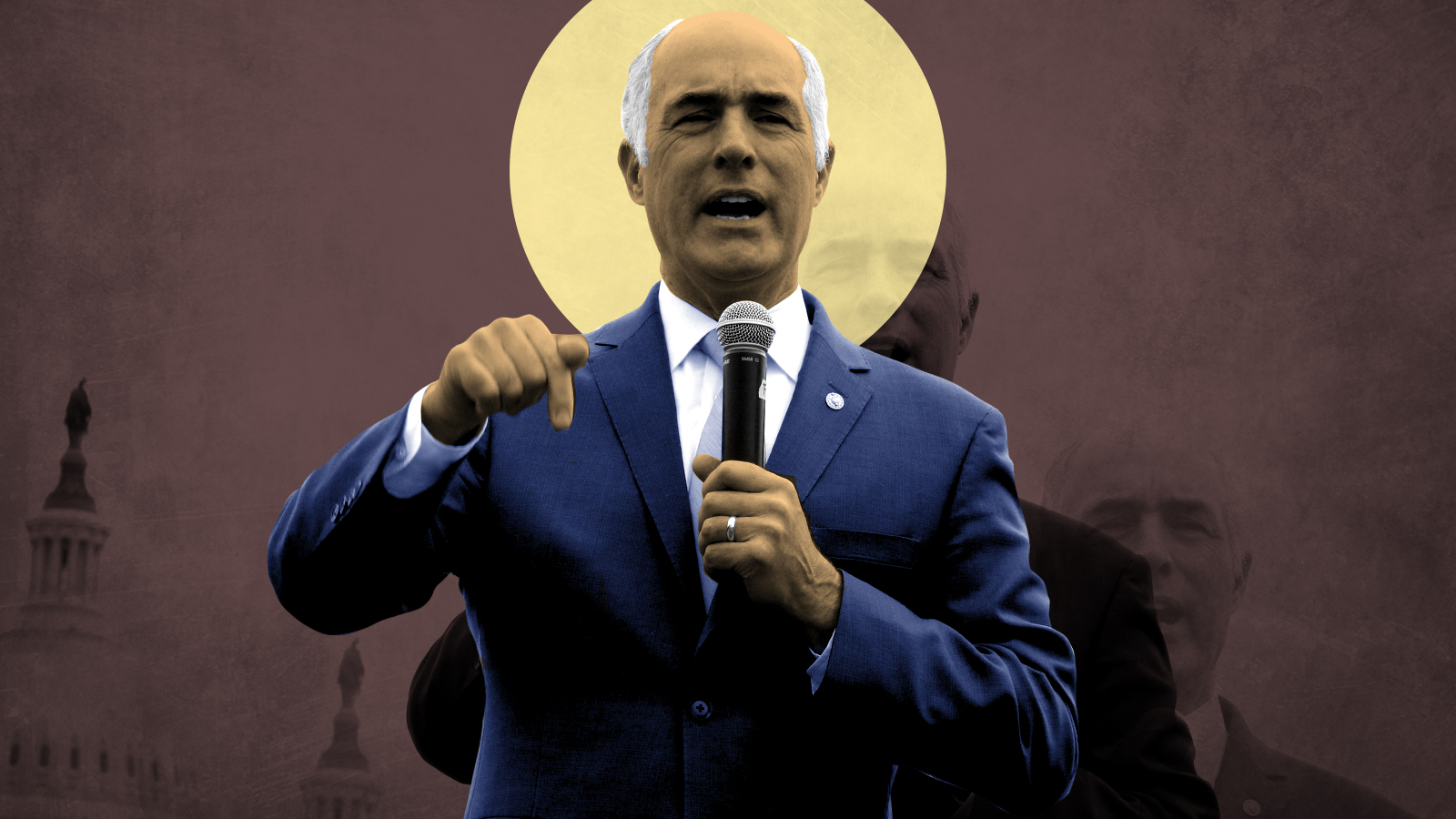The end of pro-life Democrats


A free daily email with the biggest news stories of the day – and the best features from TheWeek.com
You are now subscribed
Your newsletter sign-up was successful
Sen. Bob Casey Jr. (D-Pa.) is going to vote with the overwhelming majority of his party in favor of a Democratic bill to codify Roe v. Wade in the aftermath of a leak showing a majority of the Supreme Court may be ready to reverse the 1973 abortion decision.
Casey's reversal signals the end for pro-life Democrats. He has campaigned as a moderate opponent of abortion, a stance that helped him win his Senate seat in the 2006 race against Sen. Rick Santorum (R-Pa.). His father and namesake was an even stronger pro-life Democrat.
Indeed, the elder Bob Casey, then governor of Pennsylvania, was denied a speaking slot at the 1992 Democratic National Convention at least in part because of his abortion views. And he was the "Casey" in Planned Parenthood v. Casey (1992), a decision that came within a Justice Anthony Kennedy of overturning Roe 30 years ago and still wound up expanding the range of permissible abortion restrictions.
The Week
Escape your echo chamber. Get the facts behind the news, plus analysis from multiple perspectives.

Sign up for The Week's Free Newsletters
From our morning news briefing to a weekly Good News Newsletter, get the best of The Week delivered directly to your inbox.
From our morning news briefing to a weekly Good News Newsletter, get the best of The Week delivered directly to your inbox.
Now there is at most one maximally pro-life Democrat in each house of Congress. Sen. Joe Manchin (D-W. Va) represents a state that voted for former President Donald Trump by 40 points and is its last Democratic lawmaker. Rep. Henry Cuellar (D-Texas) is facing a primary challenge and intense criticism within the party. And though Rep. Tim Ryan (D-Ohio) was first elected to the House as an abortion opponent, as the Democratic nominee for Senate, he now defends late-term abortions. He's following a Democratic tradition that includes President Biden himself.
If Roe truly goes, the partisan sorting on abortion will have paid one dividend to the pro-life cause: Republican presidents, especially Trump, who sent the issue back to the states. But the disappearance of pro-life Democrats could make it harder to enact a more just post-Roe abortion regime or create a patchwork of wildly disparate laws in red and blue states.
Political movements often benefit from bipartisan support. The Hyde amendment, which bans most federal funding of abortion, is named after a Republican congressman but was first passed by a Democratic majority. Now it could be imperiled by the next blue wave, at a moment when abortion policy may be more controlled by elected officials than at any time in the last half century.
A free daily email with the biggest news stories of the day – and the best features from TheWeek.com
W. James Antle III is the politics editor of the Washington Examiner, the former editor of The American Conservative, and author of Devouring Freedom: Can Big Government Ever Be Stopped?.
-
 How the FCC’s ‘equal time’ rule works
How the FCC’s ‘equal time’ rule worksIn the Spotlight The law is at the heart of the Colbert-CBS conflict
-
 What is the endgame in the DHS shutdown?
What is the endgame in the DHS shutdown?Today’s Big Question Democrats want to rein in ICE’s immigration crackdown
-
 ‘Poor time management isn’t just an inconvenience’
‘Poor time management isn’t just an inconvenience’Instant Opinion Opinion, comment and editorials of the day
-
 ‘The forces he united still shape the Democratic Party’
‘The forces he united still shape the Democratic Party’Instant Opinion Opinion, comment and editorials of the day
-
 How are Democrats turning DOJ lemons into partisan lemonade?
How are Democrats turning DOJ lemons into partisan lemonade?TODAY’S BIG QUESTION As the Trump administration continues to try — and fail — at indicting its political enemies, Democratic lawmakers have begun seizing the moment for themselves
-
 How are Democrats trying to reform ICE?
How are Democrats trying to reform ICE?Today’s Big Question Democratic leadership has put forth several demands for the agency
-
 Democrats push for ICE accountability
Democrats push for ICE accountabilityFeature U.S. citizens shot and violently detained by immigration agents testify at Capitol Hill hearing
-
 Big-time money squabbles: the conflict over California’s proposed billionaire tax
Big-time money squabbles: the conflict over California’s proposed billionaire taxTalking Points Californians worth more than $1.1 billion would pay a one-time 5% tax
-
 Democrats win House race, flip Texas Senate seat
Democrats win House race, flip Texas Senate seatSpeed Read Christian Menefee won the special election for an open House seat in the Houston area
-
 Did Alex Pretti’s killing open a GOP rift on guns?
Did Alex Pretti’s killing open a GOP rift on guns?Talking Points Second Amendment groups push back on the White House narrative
-
 Is Alex Pretti shooting a turning point for Trump?
Is Alex Pretti shooting a turning point for Trump?Today’s Big Question Death of nurse at the hands of Ice officers could be ‘crucial’ moment for America
